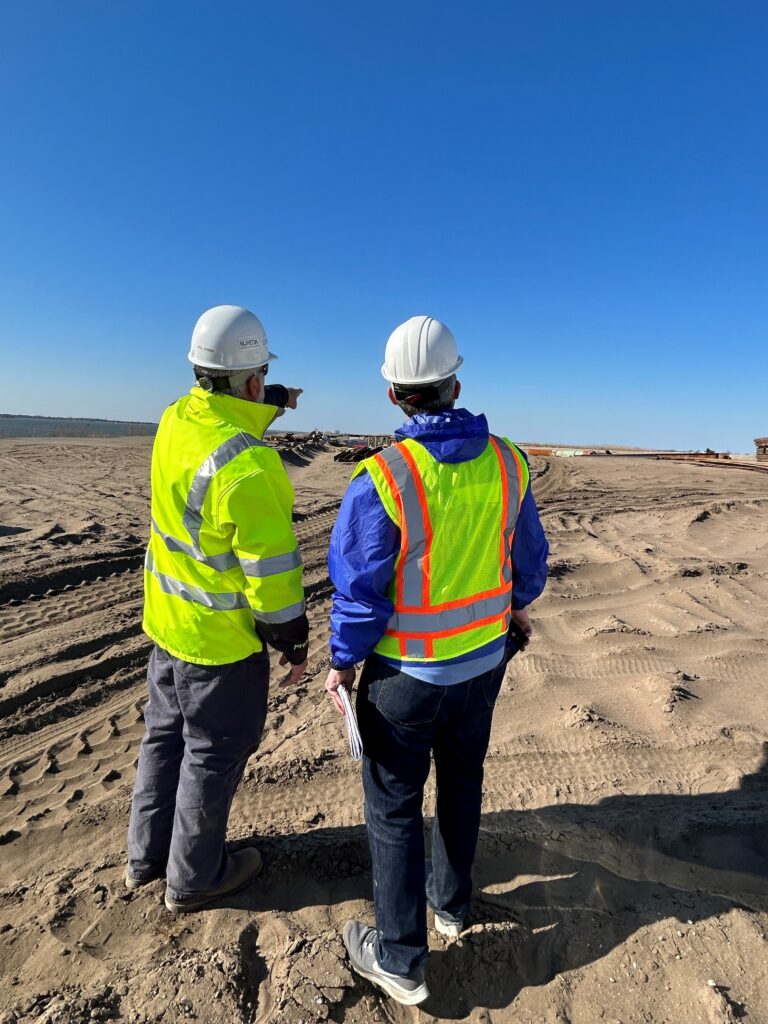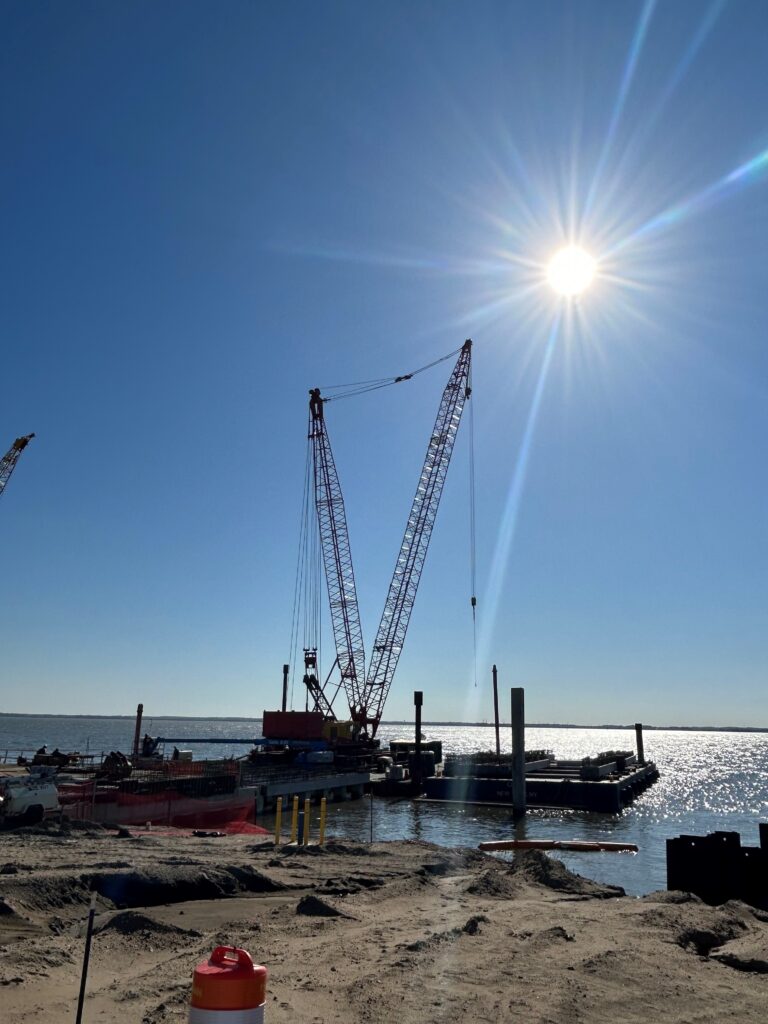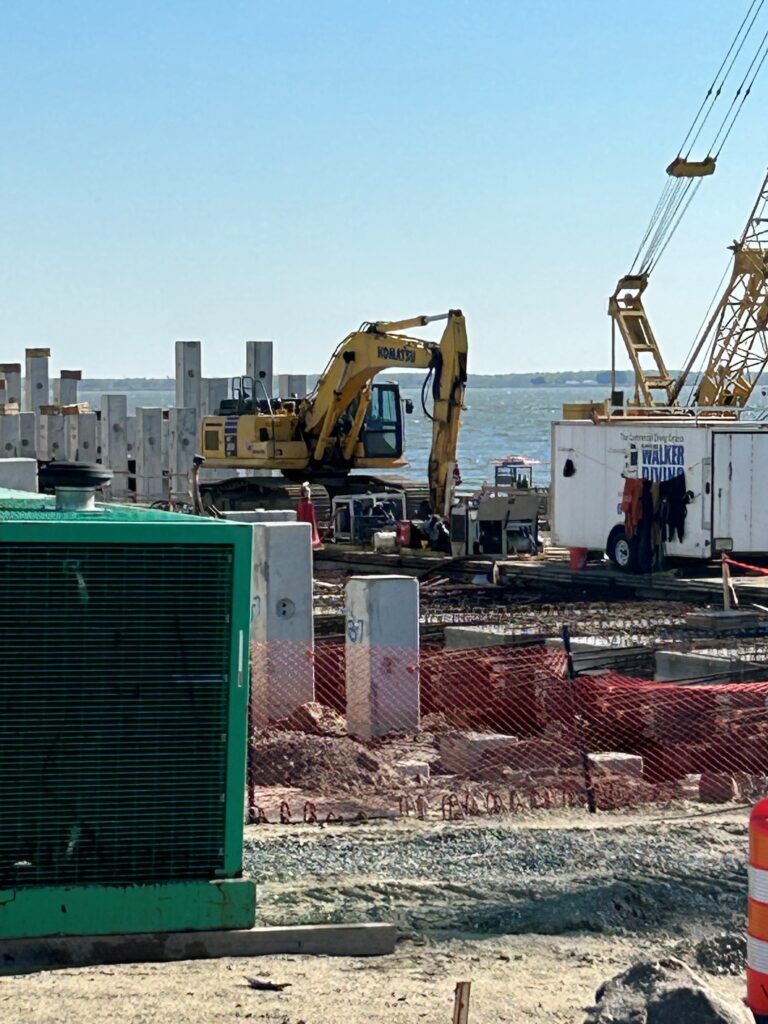Offshore wind presents a once-in-a-generation opportunity that will further New Jersey’s clean energy goals, create thousands of union construction jobs, and ensure a more resilient environment and economy for future generations. This booming industry will open doors for thousands of New Jerseyans looking to reap the benefits from these investments, moving us closer to Governor Phil Murphy’s vision for a stronger, fairer New Jersey and cementing our position as a national leader in offshore wind.
The state’s central East Coast location and significant investments in port and supply chain development position it well to support offshore wind projects along the Atlantic. These assets, combined with Governor Phil Murphy’s plan to reach 11 gigawatts (GW) of offshore wind by 2040, have made New Jersey a leader in the industry. The New Jersey Economic Development Authority (NJEDA) is proud to play a role in the emergence of this vital sector.

South Jersey, in particular, is an emerging hub for offshore wind. Today in Paulsboro, workers are fabricating steel monopiles. Just 30 miles down the Delaware River in Salem County, construction of the first purpose built wind port in America has been underway since 2021, and in the next several years this port is projected to add half a billion dollars annually to the state’s GDP and drive the creation of 1,500 or more manufacturing and operations jobs. To date, the New Jersey Wind Port project has already amassed over 200,000 union job hours. These projects, and others that follow across the state, are expected to be a formidable, long-term source of economic activity and job creation in numerous sectors such as construction, manufacturing, operations, and professional services.
In 2030, New Jersey is projected to see approximately 20,000 new jobs across the state related to offshore wind or more, given the Governor’s accelerated offshore wind energy target, from both in-state and regional demand. Many of these new jobs will be in occupations that already exist in New Jersey, but training for these occupations need to scale significantly and require additional training to meet the specific needs of the offshore wind industry. New Jersey will leverage and expand its strong workforce to address the industry’s needs and support the development of a diverse and inclusive labor force. This workforce infrastructure includes organized labor, workforce development boards, K-12 schools, community colleges, four-year universities, community based organizations, private training providers, and others.
Just a Quick Note:
InnovationsOfTheWorld.com has partnered with Trade License Zone (TLZ) to support global innovators looking to expand internationally. Take advantage of the UAE’s Free Zones—enjoy streamlined setup, low corporate taxes, and a strategic gateway to the Middle East and beyond.
Get Your UAE Free Zone License Fast & Easy!
New Jersey is developing the Wind Institute for Innovation and Training (“Wind Institute”) to engage and coordinate a wide range of stakeholders to fuel a robust and diverse industry workforce, and champion research and innovation that unlocks market potential.
Wind Institute efforts to date include:
Entering agreements with Gloucester County Institute of Technology (GCIT), Salem County Vocational Technical School, Camden County Technical Schools, and Camden County College to support the expansion of welding and painting programs to prepare workers to fabricate large-scale monopiles, which are used as the foundation of offshore wind turbines;
Awarding the New Jersey Offshore Wind Safety Training Challenge to Atlantic Cape Community College to establish an industry recognized Global Wind Organization safety training program and facility to prepare workers for jobs in the growing offshore wind industry;
Establishing the Wind Institute Fellowship Program to support undergraduate and graduate students at New Jersey’s top public and private research universities to pursue offshore wind related research; and with Wind Institute support, Ørsted and Rowan College announced a partnership to provide a first-of-its-kind offshore wind training initiative, Wind Power Ready: Atlantic City. This new workforce development program will recruit, train and place local candidates in careers as wind turbine technicians with Ørsted and other developers within the burgeoning offshore wind sector.

Offshore wind curricula for elementary, middle, high school, and career and technical schools classes that align with New Jersey’s climate change curriculum standards are also under development.
Most recently, the NJEDA’s Board approved a combined $3.7 million in grants under the Offshore Wind Workforce and Skills Development Grant Challenge to support the development of new offshore wind training programs with a particular focus on serving residents of New Jersey’s Overburdened Communities. Grants were approved for MidAtlantic States Career and Education Center, Eastern Atlantic States Carpenters Technical College, New Jersey Environmental Justice Alliance, Apex Solutions Foundation, and Ivy Hill Neighborhood Association.
As offshore wind grows in New Jersey, it’s critical to build a well-trained and qualified workforce that meets the needs of the industry. Under Governor Murphy’s leadership, the NJEDA is committed to ensuring high-quality workforce development training programs are available so that all New Jerseyans, especially those living in minority and low-income communities, have equitable access to this emerging industry.
















